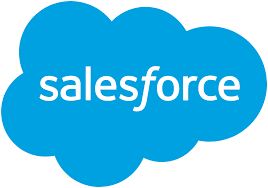Salesforce today launched Einstein Studio, a bring-your-own-model (BYOM) AI development tool that allows customers to bring AI models they have already developed on Amazon SageMaker or Google Cloud Vertex AI to bear on their proprietary Salesforce data.
Salesforce has been providing AI and machine learning capabilites since it originally launched the Einstein product way back in 2016. Earlier this year, Salesforce launched Einstein GPT, adding generative AI capabilites to the mix. Now it’s taking the next step forward in its AI journey with Einstein Studio, which opens the door to third-party AI models.
According to Salesforce, Einstein Studio will enable customers to use data they have stored in the Salesforce Data Cloud to train outside AI models right alongside their Einstein GPT models. So far, the company has named Amazon SageMaker from AWS and Vertex AI from Google Cloud as compatible third-party AI development environments, but it works with other AI services, the company says.
Besides enabling customers to select their preferred models to work on Salesforce data, this setup also has the benefit of minimizing data movement via ETL and reducing overall complexity. Once secure data connections have been established, the data scientist is presented with a “point and click” environment for fine-tuning the pre-built model on Salesforce data and deploying it via established methods.
“Einstein Studio offers a faster, easier way to create and implement custom AI models, including a BYOM approach that allows customers to use the most relevant AI models–all while bypassing expensive ETL data pipeline processes,” says Rahul Auradkar, the executive vice president and general manager for Salesforce unified data services and Einstein, in a press release. “Now, Salesforce customers can harness their own proprietary data to power predictive and generative AI across every part of their organization.”
Salesforce customers can manage and govern their Salesforce and third-party AI models through a control panel included with Einstein Studio. The solution also includes a model builder component that enables the customer to pick the type of model they want to use.
The BYOM capabilites does take some setup work, however. According to this Salesforce document, customers must first use a Data Cloud Python connector to be able to access Salesforce data in their SageMaker notebook. “The connector, which is built on top of the Query API, uses an inference endpoint to move data between your prediction in a Data Model Object (DMO),” the document says.
Once the DMO connection is created and the model is activated in the Data Cloud, users have two options to consume predictions made by the outside AI models, according to Salesforce. They can use Ad Hoc Analysis, which involves batch data ingestion, or Flow Builder, which utilizes real-time data.
The BYOM feature works with both predictive and generative AI types, according to Salesforce. Customers can build AI models that predict things like whether customers are going to churn or what sorts of products they would be interested in, or they can tap into GenAI to automatically develop personalized email campaigns, for example.
The integration of Vertex AI and Salesforce Data Cloud is good for both companies, as well as their join customers, says Kevin Ichhpurani, Google Cloud’s corporate vice president of global ecosystem and channels.
“Salesforce and Google Cloud share a commitment to helping businesses create real-world value with generative AI,” Ichhpurani says in a press release. “Expanding access to Google’s powerful models for Salesforce customers through Einstein Studio means businesses can train AI models on Salesforce data, and then use the models throughout Salesforce’s business applications.”
Likewise, AWS is looking forward to the integration benefiting joint customers, says Swami Sivasubramanian, the vice president of database, analytics, and machine learning at AWS.
“Working together with Salesforce, we are making it even easier for customers to bring together their Salesforce data with Amazon SageMaker, so they can take advantage of the breadth and depth of SageMaker features to fuel machine learning-powered insights and quickly take action on what they uncover,” he says.
Related Items:
Salesforce Goes All-in on Generative AI with Einstein GPT, Integration with OpenAI
We’re Leaving Data Potential on the Table, Salesforce Says
SageMaker Bolstered with Better Controls, AI Governance
The post Salesforce Goes BYOM for AI appeared first on Datanami.



0 Commentaires